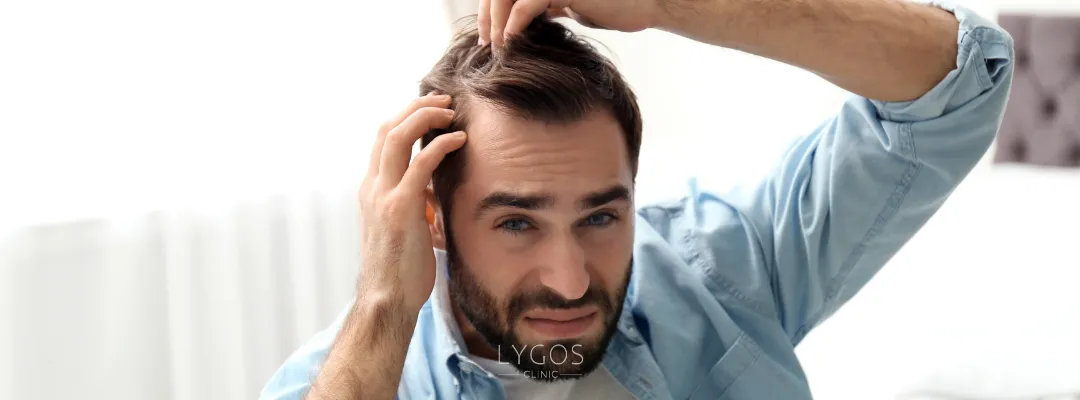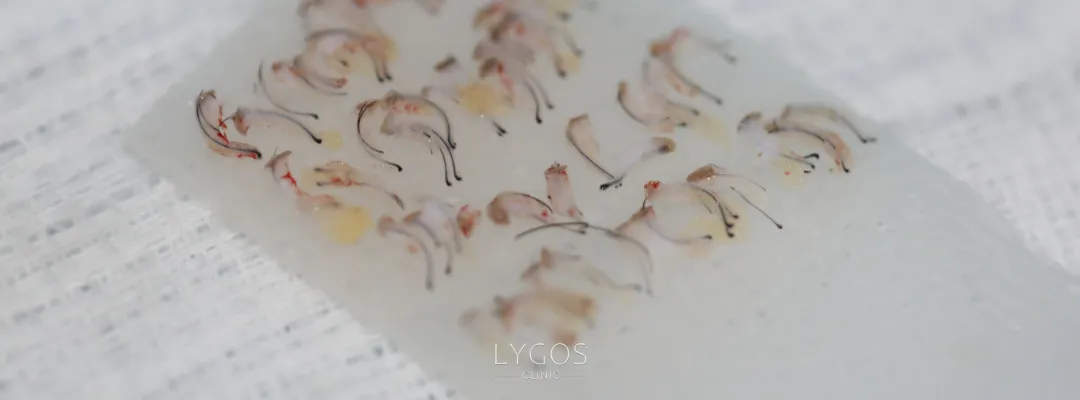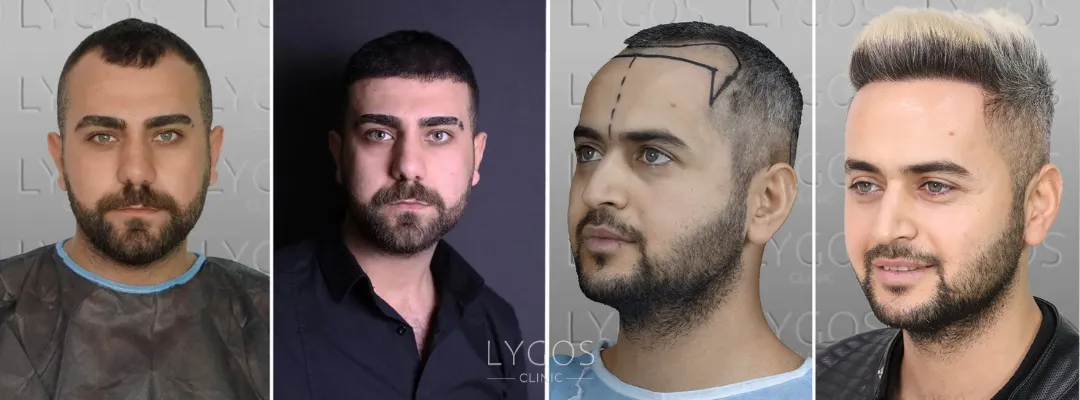Failed Hair Transplants | LYGOS CLINIC 2025

Failed Hair Transplants
Why do hair transplants fail? As exciting as it is to have a hair transplant, the reality is that there is no 100% guarantee that everything will go as planned. People don’t discuss failed hair transplants as much as successful ones. However, this does happen occasionally. In this article, we will discuss why hair transplants fail. We will talk about the basic things you need to do to implement the question “How to have a successful hair transplant?”.
What Percentage Of Hair Transplant Fail?

According to the ISHRS study, the percentage of failure of hair transplant is approximately 43%. However, this study analyzes failure according to the patient’s satisfaction and whether the hair transplant meets expectations. Real hair transplant failure is when the transplanted hair does not grow. Professional hospitals with skilled and specialized surgeons usually have a failure rate of less than 2%. On the other hand, the failure rate of hospitals that do not have the latest technological equipment and do not apply modern techniques can be up to 30%.
Why Do Hair Transplant Fail?

The result after hair transplant may not satisfy everyone. Therefore, it may be necessary to undergo hair transplant surgery again. So, why do hair transplants fail?
Inexperienced and non-specialized doctor performing hair transplant:
Some hair transplant surgeons are more skilled in one type of hair transplant than another. For example, not all doctors can successfully perform the DHI hair transplant technique. Also, most surgeons are only good at Follicular Unit Extraction techniques and will probably fail to transplant with advanced techniques such as hybrid.
Poor postoperative care:
Even if a top-notch doctor performs his duty, if the patient is not provided with the necessary post-operative care, the hair transplant will most likely fail. Poor post-operative care will negatively affect the outcome of the hair transplant. Dressing wounds, washing the hair and applying medication are just some of the things that a patient who has recently undergone surgery should pay attention to. Patients also have a very important role in post-hair transplant care. A good hospital will explain in detail what to do and what not to do after hair transplant surgery.
Hair graft rejection:
Rejection of the hair graft is rare, but it does occur in some patients. Rejected hair transplants do not grow. A disease called LLP (Lichen Planopilaris) causes inflammation of the upper part of the hair follicles. This condition is usually responsible for rejection.
What Percentage of Hair Transplants Are Successful?

The success of hair transplant is measured by the percentage of hair regrowth. If 80 percent or more hair transplants are successful, the transplantation is considered successful. The general success rate of hair transplants is 95% – 98%, especially when techniques such as Follicular Unit Extraction (FUE), DHI, hybrid, Afro hair transplant are used. The surgeries performed by the best hair transplant doctors have a success rate of up to 100%.
How is Hair Transplant Successful?

Choosing the best hospital:
Every reputable hair transplant hospital aims to provide the best treatments to their patients as their reputation is at stake. These hospitals are also well-versed in advanced techniques such as the sapphire FUE method, which increases the success rate of hair transplants. It is up to you to find out important information about the hospital and doctor of your choice and which hair transplant methods they use.
Suitability for hair transplant:
Most patients with hair loss do not realize that certain criteria can make them unsuitable for hair transplant. Having insufficient donors in the body or the presence of any blood-borne disease may indicate that you are not suitable for a hair transplant. Even if you carefully overcome these problems and get a transplant, you may face undesirable results. In such cases, you should look for a different method of hair restoration.
Following the postoperative instructions:
Most hair transplant failures are the fault of the patient, not the surgeon. If you don’t take the medication prescribed after your surgery and don’t follow every instruction, you are likely to have a failed hair transplants. Everything from regular diet, hair care, check-ups and sleeping position can affect your hair transplant results.


